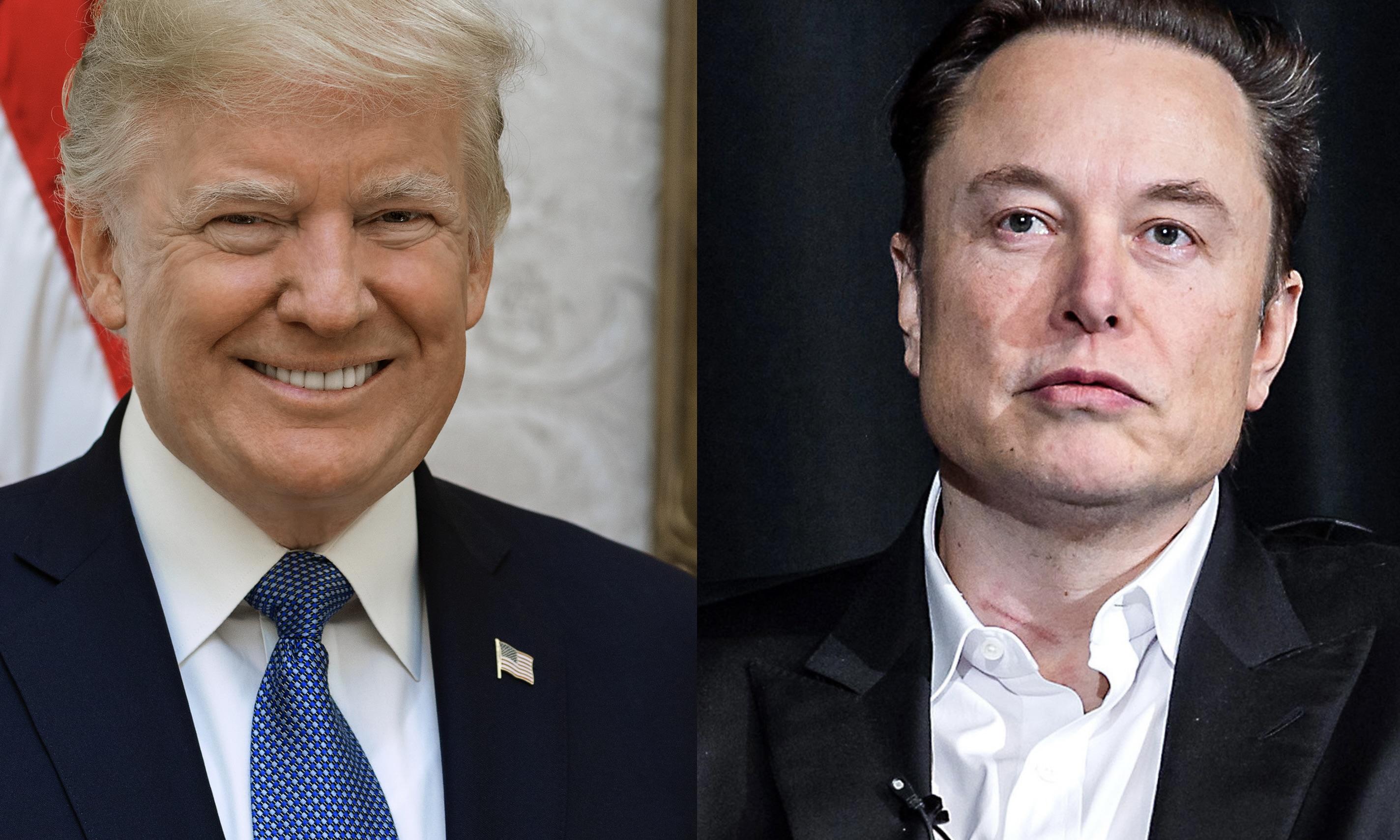In a political saga reminiscent of a Hollywood thriller, Elon Musk has emerged as a central figure in Donald Trump’s return to the White House. Musk, known for his groundbreaking innovations and controversial public persona, is shaping not only America’s political future but potentially the world’s.
The billionaire entrepreneur’s deep involvement in Trump’s campaign and transition team has raised eyebrows and sparked debate over the unprecedented fusion of business and politics.
Musk’s Role in Trump’s Campaign: Money, Influence, and Vision
Elon Musk’s support of Donald Trump extended far beyond a financial contribution. Musk reportedly invested $120 million into the Trump campaign and established a robust field operation, which included deploying canvassers and even providing transportation to increase voter turnout. His influence was evident in campaign rallies, where he energized crowds with his vision for innovation and efficiency.
Trump, during his victory speech, lauded Musk as a “super genius” and a pivotal force in the campaign. Musk’s appeal to younger voters, particularly men, complemented Trump’s established base, blending promises of innovation with nostalgic calls for institutional reform.
However, Musk’s involvement went beyond rallying support. He was instrumental in shaping Trump’s policy agenda, particularly through his appointment to lead the newly established Department of Government Efficiency (DOGE). While the department’s name nods to Musk’s playful promotion of Dogecoin, its mandate to streamline federal agencies is no laughing matter.
A Controversial Partnership: Ambition and Potential Conflict
Musk’s influence raises questions about the balance of power between private wealth and public governance. Critics have pointed to Musk’s ongoing regulatory battles, including investigations into Tesla’s self-driving technology and SpaceX’s environmental compliance, as potential conflicts of interest. His close proximity to the Oval Office has intensified scrutiny, with some accusing Musk of leveraging his role for personal gain.
Musk’s stated goal, however, transcends earthly concerns. Sources close to him affirm his longstanding obsession with Mars colonization. “Being in control of U.S. government budgets accelerates that mission,” said a member of his circle. Musk’s bold ambitions, however, could clash with Trump’s traditional political agenda, setting the stage for potential friction.
Public Reactions Reflect Divide
Musk and Trump’s partnership has sparked diverse reactions online:
- @SpaceFanatic99: “If Musk can run the government like he runs SpaceX, maybe we’ll finally see real efficiency!”
- @DemocracyMatters: “We didn’t elect Musk. This billionaire-politician dynamic is a dangerous precedent.”
- @FreedomAdvocate2025: “DOGE might be a joke acronym, but cutting federal bloat is long overdue.”
- @PolicyWonksUnite: “Conflicts of interest abound. Musk’s role in government needs serious oversight.”
- @MarsOrBust2025: “If Musk gets us to Mars, I’ll forgive him for cozying up to Trump.”
- @EverydayAmerican: “How does this partnership help regular folks? Efficiency doesn’t mean compassion.”
A Partnership That Could Reshape America
The union of Trump and Musk signals a seismic shift in the intersection of wealth, innovation, and governance. While the promise of streamlined efficiency appeals to fiscal conservatives, others worry about the potential erosion of vital social programs.
As Musk and Trump redefine the boundaries of influence, the long-term impact on the American public remains uncertain. For now, their partnership represents both the promise of bold innovation and the perils of unprecedented power consolidation.



 Why did Iran bomb Dubai? A Middle East expert explains the regional alliances at play
Why did Iran bomb Dubai? A Middle East expert explains the regional alliances at play  Failure of US-Iran talks was all-too predictable – but Trump could still have stuck with diplomacy over strikes
Failure of US-Iran talks was all-too predictable – but Trump could still have stuck with diplomacy over strikes  Zelenskiy Urges Change in Iran After U.S. and Israeli Strikes, Cites Drone Support for Russia
Zelenskiy Urges Change in Iran After U.S. and Israeli Strikes, Cites Drone Support for Russia  Israel Declares State of Emergency as Iran Launches Missile Attacks
Israel Declares State of Emergency as Iran Launches Missile Attacks  Israel Strikes Hezbollah Targets in Lebanon After Missile and Drone Attacks
Israel Strikes Hezbollah Targets in Lebanon After Missile and Drone Attacks  Trump Announces U.S. Strikes on Iran Navy as Conflict Escalates
Trump Announces U.S. Strikes on Iran Navy as Conflict Escalates  U.S.-Israel Strike on Iran Escalates Middle East Conflict, Trump Claims Khamenei Killed
U.S.-Israel Strike on Iran Escalates Middle East Conflict, Trump Claims Khamenei Killed  Netanyahu Suggests Iran’s Supreme Leader Khamenei May Have Been Killed in Israeli-U.S. Strikes
Netanyahu Suggests Iran’s Supreme Leader Khamenei May Have Been Killed in Israeli-U.S. Strikes  U.S. Deploys Tomahawks, B-2 Bombers, F-35 Jets and AI Tools in Operation Epic Fury Against Iran
U.S. Deploys Tomahawks, B-2 Bombers, F-35 Jets and AI Tools in Operation Epic Fury Against Iran  Pentagon Leaders Monitor U.S. Iran Operation from Mar-a-Lago
Pentagon Leaders Monitor U.S. Iran Operation from Mar-a-Lago  EU Urges Maximum Restraint in Iran Conflict Amid Fears of Regional Escalation and Oil Supply Disruption
EU Urges Maximum Restraint in Iran Conflict Amid Fears of Regional Escalation and Oil Supply Disruption  UK Accepts U.S. Request to Use British Bases for Defensive Strikes on Iranian Missiles
UK Accepts U.S. Request to Use British Bases for Defensive Strikes on Iranian Missiles  Trump Warns Iran as Gulf Conflict Disrupts Oil Markets and Global Trade
Trump Warns Iran as Gulf Conflict Disrupts Oil Markets and Global Trade  AI is already creeping into election campaigns. NZ’s rules aren’t ready
AI is already creeping into election campaigns. NZ’s rules aren’t ready  Australia Rules Out Military Involvement in Iran Conflict as Middle East Tensions Escalate
Australia Rules Out Military Involvement in Iran Conflict as Middle East Tensions Escalate  Trump Says U.S. Attacks on Iran Will Continue, Warns of More American Casualties
Trump Says U.S. Attacks on Iran Will Continue, Warns of More American Casualties 
































